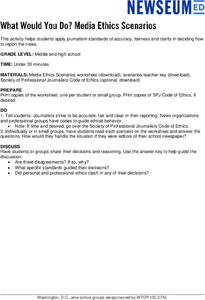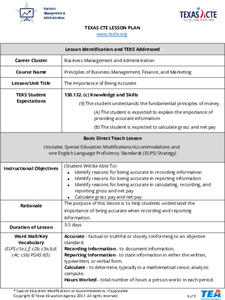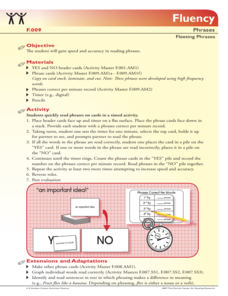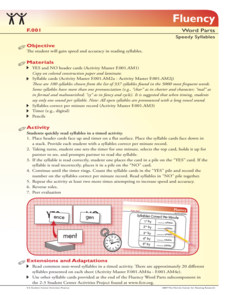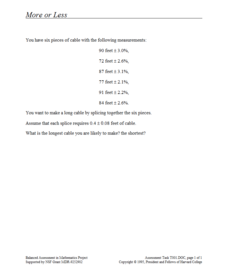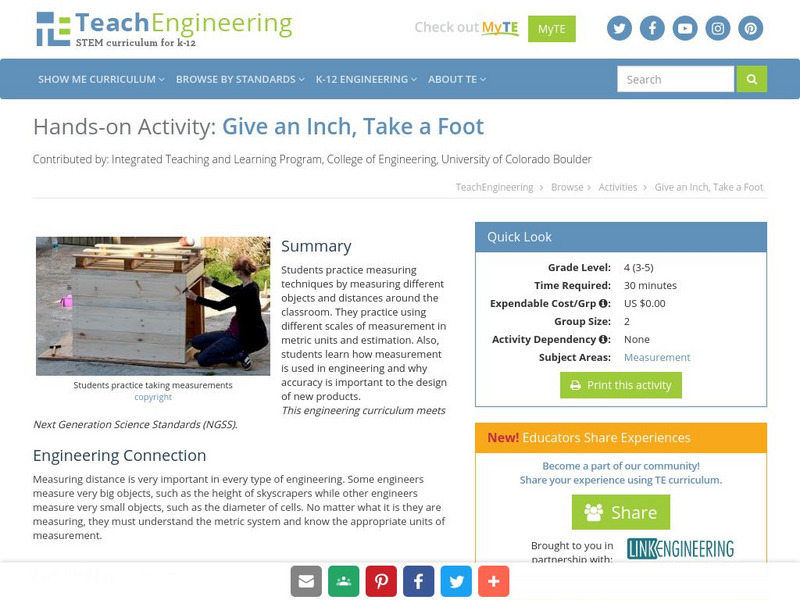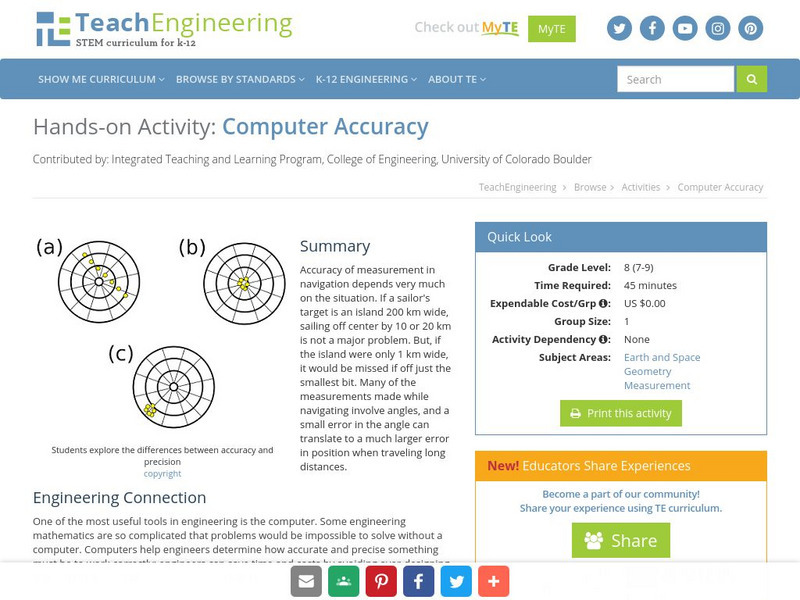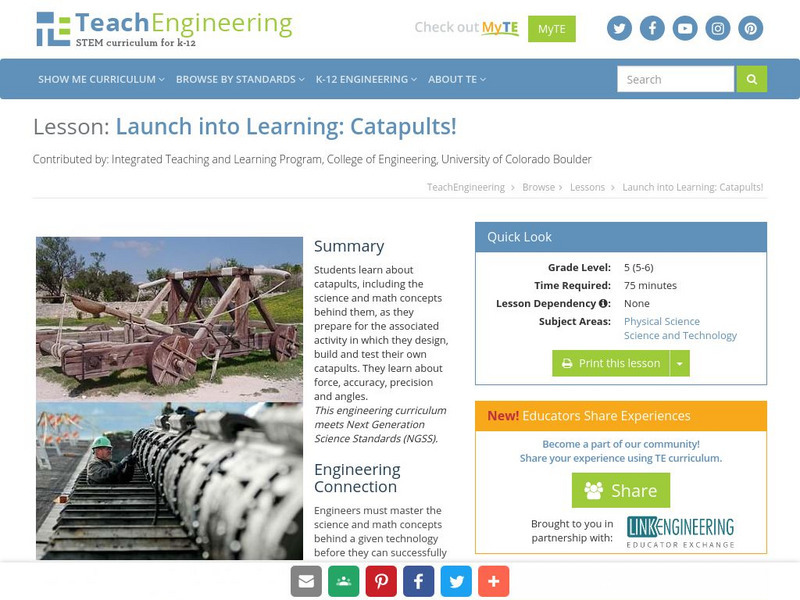Newseum
What Would You Do? Media Ethics Scenarios
Young journalists are presented with scenarios that involve media ethics. They must decide in each case whether to cover the story, what they would cover, and if covered, what the angle would be.
Texas Education Agency (TEA)
Importance of Being Accurate
Accuracy is key! Using the detailed resource, scholars practice their presicion skills, taking online spelling and typing tests. Next, they demonstrate accuracy by calculating the gross and net pay of five hypothetical employees.
Newseum
Media Ethics: Fairness Formula Starts With Accuracy
As part of a study of media ethics, young journalists apply a fairness formula to news reports. They look at accuracy, balance, completeness, detachment, and ethics to determine if the reporting is fair.
Newseum
When the News Media Make Mistakes
Mistakes happen. When they happen in news reporting, be it in print or on the internet, journalism ethics requires that the errors be corrected. Young journalists use an Accuracy Checklist to track how news organizations post corrections...
ABCya
Gobble Squabble
A Thanksgiving-themed interactive boosts addition, subtraction, multiplication, and division facts. Using the keyboard's arrows, players navigate a turkey through a maze, gobbling up as many berries as possible without getting tagged by...
Florida Center for Reading Research
Fluency, Connected Text, Computer-Based Reading
Scholars take to computers or devices to boost reading skills using educational software or websites.
Florida Center for Reading Research
Fluency: Connected Text, Practice and Read
A reading activity boosts scholars' level of fluency while reading connected text. Working collaboratively, pairs read a word list three times and a specific text while their partner gauges their accuracy and speed.
Florida Center for Reading Research
Fluency: Chunked Text, Reading Chunks
The activity focuses on reading chunked text. Peers grouped by specific ability levels take turns reading a text with proper intonation, expression, and phrasing.
Florida Center for Reading Research
Fluency: Phrases, Fleeting Phrases
An activity boosts readers' fluency in reading common phrases and idioms. Peers time one another and track their progress using phrase cards and record sheets.
Florida Center for Reading Research
Fluency: Words, Quick Sort
Peers work together to boost fluency by timing each other as they read and sort multisyllabic words. Record sheets keep track of participants' progress.
Florida Center for Reading Research
Fluency: Word Parts, Speedy Syllables
Prefixes, affixes, roots, and word parts are the focus of a lesson designed to boost scholars' speed and accuracy. Peers work collaboratively to time one another while reading word cards. Answers, scores, and times are recorded to track...
Concord Consortium
More or Less
How long can the cable get? A short performance task provides learners with information on the length of cables and the margin of error for each. They must determine the longest and shortest cable possible by splicing these cables.
American Press Institute
In the Newsroom: The Fairness Formula
Reporting the news is easy, right? Think again! Show young scholars the difficult choices journalists make every day through a lesson that includes reading, writing, and discussion elements. Individuals compare the language and sources...
Royal Society of Chemistry
Significant Figures
Ready to add some innovation to your significant figures lesson? Pupils practice sig fig rules using a puzzle approach. Check out the Teacher's Area for printable materials, an answer key, and strategies for implementing the resource.
Media Smarts
Hoax? Scholarly Research? Personal Opinion?
Divide your class into groups to study the validity of online sources. One group looks at the authority and accuracy of four listed websites, another group looks at advocacy and objectivity, and the third group looks at currency and...
Science Buddies
Science Buddies: Measuring Up
Measurements are very important for scientists. It is especially important that the measurements be accurate. Think about how important accuracy is when you want to know if you are taller than a friend of yours, every inch counts. In...
Science Buddies
Science Buddies: She Shoots, She Scores!
While watching an ice hockey game, have you ever wondered what differentiates a good player from a great player? For sure, the great player is athletically superior to the good player. But maybe it is a combination of athleticism and...
University of Colorado
University of Colorado: Error, Accuracy, & Precision
A serious paper by serious geographers, discussing at full length the problems caused by error, inaccuracy, and imprecision in Geographical Information Systems. The definitive word in the real world.
University of California
Univ. Of Melbourne: Managing Uncertainty in Gis
A unit of the NCGIA core curriculum in GIS (Geographic Information Science), the author gives a full discussion of uncertainty, its sources, how to deal with it, what plans to make. Very thorough.
TeachEngineering
Teach Engineering: Right on Target: Catapult Game
Students experience the engineering design process as they design and build accurate and precise catapults using common materials. They use their catapults to participate in a game in which they launch Ping-Pong balls to attempt to hit...
TeachEngineering
Teach Engineering: Give an Inch, Take a Foot
Students practice measuring techniques by measuring different objects and distances around the classroom. They practice using different scales of measurement in metric units and estimation. Also, students learn how measurement is used in...
TeachEngineering
Teach Engineering: Computer Accuracy
Accuracy of measurement in navigation depends very much on the situation. If a sailor's target is an island 200 km wide, sailing off center by 10 or 20 km is not a major problem. But, if the island were only 1 km wide, it would be missed...
TeachEngineering
Teach Engineering: About Accuracy and Approximation
Students learn about the concepts of accuracy and approximation as they pertain to robotics, gain insight into experimental accuracy, and learn how and when to estimate values that they measure. Students also explore sources of error...
TeachEngineering
Teach Engineering: Launch Into Learning: Catapults!
Students learn about catapults, including the science and math concepts behind them, as they prepare for the associated activity in which they design, build and test their own catapults. They learn about force, accuracy, precision and...


